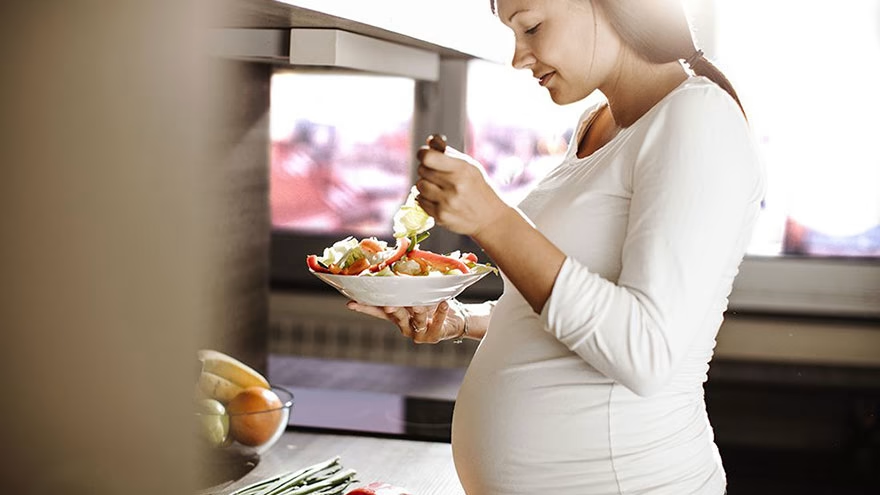Follow recommendations carefully when preparing and eating pork to reduce common risks that could harm both you and your baby.

Listeriosis
Deli meats like ham – among other foods – can be a source of bacteria that causes listeriosis. This illness causes flu-like symptoms and can eventually spread to the nervous system, resulting in headache, confusion and even convulsions.If a pregnant woman contracts listeriosis, the illness could lead to miscarriage, stillbirth, premature delivery and serious illness in the newborn, warns the American Pregnancy Association. If a physician diagnosis and treats listeriosis quickly enough with antibiotics, the infection may not transfer to the baby.
Toxoplasmosis
Both pork and lamb can contain a parasite that could result in toxoplasmosis, according to the International Food Information Council Foundation. If a pregnant woman eats pork contaminated by this living parasite, significant health issues could occur in the unborn baby. As a result of the mother contracting toxoplasmosis, the baby's eyes and brain could be damaged.
Salmonella
Undercooked pork, as well as other meats, eggs and dairy products could cause salmonellosis, according to the Colorado State University Extension. Although uncommon in the United States, one variety of salmonella bacteria, known as S. typhi, could be transmitted to the unborn baby and cause stillbirth or premature labor.It’s also possible to contract salmonella bacteria from infected foods by not washing hands effectively or by the food preparation process if a cook doesn’t wash work surfaces well while preparing foods.
Safer Pork
When preparing pork for a meal, always ensure that you cook it until it has an internal temperature of 160 degrees, according to the Foodsafety.gov website. All deli meats – those containing pork and other ingredients – require heating until the meat reaches a temperature of 165 degrees to kill bacteria.Avoid raw pate, including pate made from pork and other meats, due to the raw meat. Instead, choose canned pate because the canning process heats the meat sufficiently.
Save for later
Found this helpful?
Pin this article to your Pinterest board and come back to it whenever you need a reminder.
Save to Pinterest


